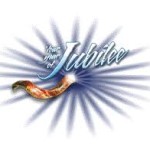Congregation Beth Mordecai
Congregation Beth Mordecai
An inclusive congregation affiliated with the Conservative Movement.
Your Jewish Home for the Soul!
An inclusive congregation affiliated with the Conservative Movement.
Your Jewish Home for the Soul!
January 31, 2015 By bethmordecai no comments.
 Parashat B'shalah 2014/5774 (Triennial II): Why Am I in the Middle?
At the end and the beginning of the triennial section of this week's Torah portion (Exodus 14:15 and Exodus 16:8), Moses finds himself standing between a complaining people and an impatient God. At first, Moses tries to intercede but later on he tries to get out of the way. Why the shift? What is different now about the relationships among God, Moses, and the Israelites that leads Moses to no longer want to be the middle man? And perhaps investigating this question will help us understand what to do when we are caught in the middle.
Join us for this interesting conversation on being caught in the middle.
Parashat B'shalah 2014/5774 (Triennial II): Why Am I in the Middle?
At the end and the beginning of the triennial section of this week's Torah portion (Exodus 14:15 and Exodus 16:8), Moses finds himself standing between a complaining people and an impatient God. At first, Moses tries to intercede but later on he tries to get out of the way. Why the shift? What is different now about the relationships among God, Moses, and the Israelites that leads Moses to no longer want to be the middle man? And perhaps investigating this question will help us understand what to do when we are caught in the middle.
Join us for this interesting conversation on being caught in the middle.
Category : Online Learning Online Parashah Class Tag : b'shalah beshallach caught God intermediary Israelite people middle moses online parsha class online parshah class parsha parshat relationship torah weekly torah portion בשלח
May 9, 2014 By bethmordecai no comments.
 Parashat B'har 2014/5774 (Triennial I) -- What's a Jubilee?
In this week's Torah portion we read about the "yoveil," the commemoration of the Jubilee every 50 years. But what is a Jubilee? Where does the term come from and what is it all about? Join us as we discuss the physical and spiritual qualities of the Jubilee and its message for our day.
Parashat B'har 2014/5774 (Triennial I) -- What's a Jubilee?
In this week's Torah portion we read about the "yoveil," the commemoration of the Jubilee every 50 years. But what is a Jubilee? Where does the term come from and what is it all about? Join us as we discuss the physical and spiritual qualities of the Jubilee and its message for our day.
Category : Online Learning Online Parashah Class Tag : b'har behar blasts d'ror jubilee liberty online learning online parashah class parsha parshat Rosh Hashanah shofar yoveil בהר דרור יובל שופר תרועה
May 2, 2014 By bethmordecai no comments.
 Parashat Emor Triennial I (2014/5774) -- A Disabled Priest?
This week's Torah portion, Parashat Emor, we learn that any priest who has a "defect" is not allowed to participate in the sacrificial offerings (Lev 21:17). Can we learn anything from this verse on the Torah's treatment of people with disabilities, including how they can participate in our communities? Join us for this important conversation!
Parashat Emor Triennial I (2014/5774) -- A Disabled Priest?
This week's Torah portion, Parashat Emor, we learn that any priest who has a "defect" is not allowed to participate in the sacrificial offerings (Lev 21:17). Can we learn anything from this verse on the Torah's treatment of people with disabilities, including how they can participate in our communities? Join us for this important conversation!
Category : Online Learning Online Parashah Class Tag : emor online learning online parashah class parashah parsha parshat אמור
December 13, 2013 By bethmordecai no comments.
2013/5774 (Triennial I) -- To Lie With Our Ancestors In this week's Torah portion, Jacob is on his death bed and says he's about to "lie with my ancestors" (shakhavti im avotai). What is the meaning of this phrase in regards to biblical attitudes towards death? Can we also learn something from this text on the role that biblical ancestors play in biblical worship and on the biblical understanding of the afterlife? Lastly, how will this learning help us understanding the meaning of death in our lives?
Category : Online Learning Online Parashah Class Tag : online learning online parashah class online parsha class parsha parshat torah vayechi vayehi vayekhi